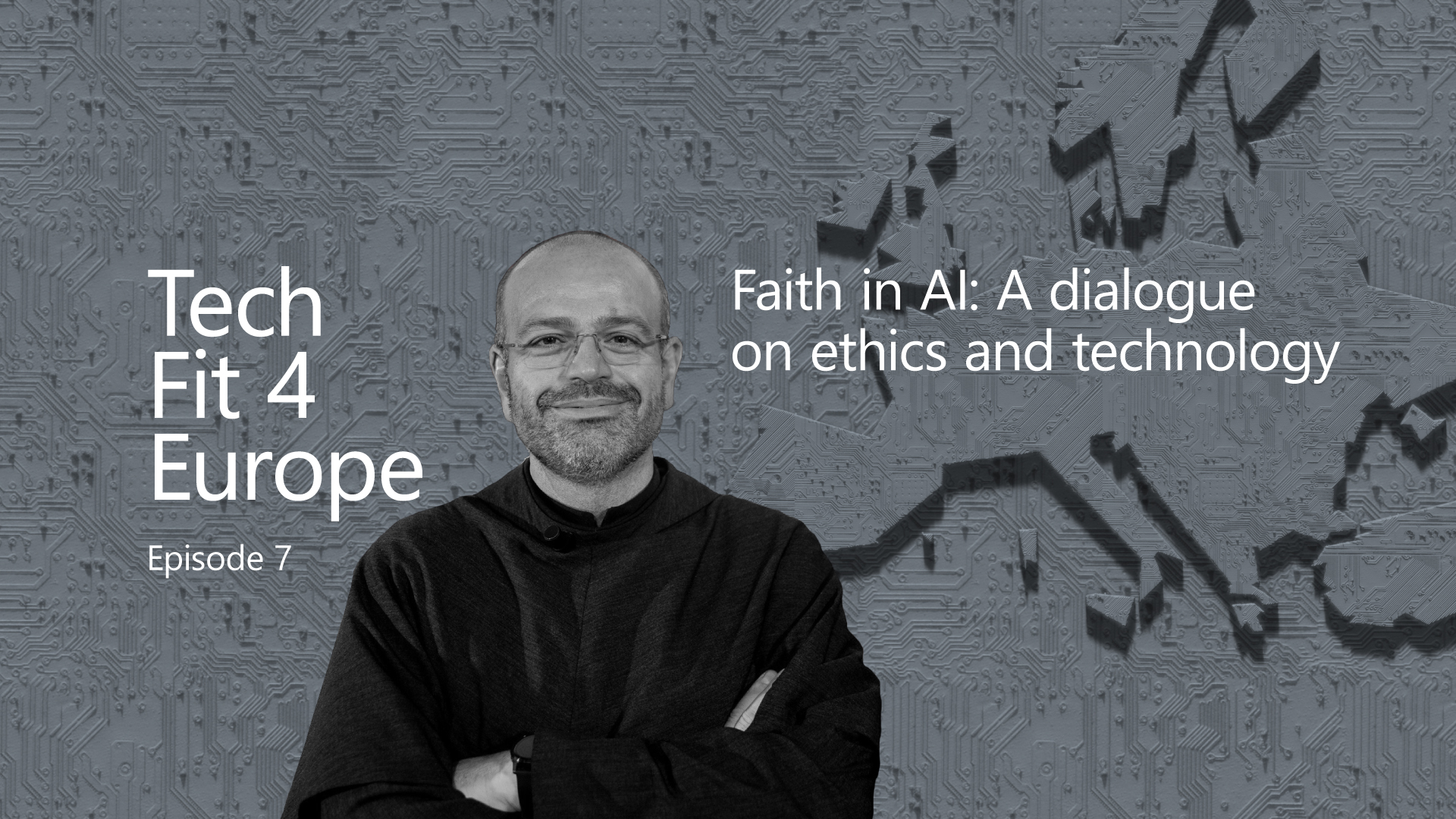As a Franciscan monk and Professor of Moral Theology, Bioethics and Neuroethics at the Gregorian Pontifical University in Rome, Father Paolo Benanti is an expert in both ethics and technology.
A specialist in robotics, digital ethics and their implications for human values, he participated in the launch of the Rome Call for AI Ethics in February 2020. Signatories, including Microsoft, agree that artificial intelligence tools must be developed with the protection of humankind and our natural environment in mind.
Speaking with Casper Klynge for the #TechFit4Europe podcast, the author of Homo Faber: The Techno-Human Condition says there are many ways that religion and technology can learn from each other.
Here are five takeaways from their conversation.
1. Digital technology is creating a new age for humans
Artificial intelligence – in fact, almost all emerging technology – no longer has limited applications. From manufacturing to energy, healthcare and finance, it is becoming embedded in everything, and will ultimately impact the way we see the world. Benanti believes that digital transformation will lead to a new age in human history.
He draws a parallel with the 16th century, when the creation of lenses led to both telescopes and microscopes.
“With the telescope, we can study the infinite big, with the microscope, the infinite little,” he said. “And what we understood of the reality, the cosmos, and what we understood of ourselves as human beings, changed forever. We were not anymore the center of the universe. We discovered that we were a little side part of everything.”
2. The Church can promote technology for good
As one of The Vatican’s leading experts on technology, Benanti has shared his views within the Roman Catholic church that tech cannot be ignored. He also says that the Church, with its grounding in ethics, has a role to play in ensuring a responsible approach to digital transformation.
He believes that a genuinely ethical approach “is not simply fear-driven, because fear is not ethics. The ethical perspective that we should have is to build something better.”
Bringing people together is positive, says Benanti, while also creating a forum so that people work together to achieve change, to start to design a future in which the machine is not an evolutionary competitor to the human being.
3. Digital ethics can foster a joint sense of purpose
Benanti says he has seen a lot of goodwill in the technology industry, inspired by the promise of what innovation could create. But the flip side of that is the potential harm machines could cause to humankind. The need to ensure that tech has a positive impact can unite stakeholders around a common purpose.
Every organization, from the church to the largest IT organization, is made by people, Benanti says. “People would like not just to accomplish a duty, they would like to have a meaning, to have a purpose.” He sees this as a driver for change, not only at the organizational level, but also among multiple stakeholders in the international arena.
4. The Rome Call is an opportunity for interfaith dialogue
Nearly a year since the Pontifical Academy for Life – The Vatican’s ethics research organization – joined the Rome Call, other religions have expressed an interest in signing, in a notable display of the aspiration for interfaith solidarity. Benanti says there are “advanced discussions” underway with the representatives of the Jewish and Muslim faiths to make this happen.
“Can you imagine the symbolic shockwave,” says Benanti, “having the three major leaders of monotheistic religions that sign a piece of paper, that talk about dreaming of the future – look at kids, look at peace, look at the human beings, all together in the same space, saying, ‘Look, technology is not our worst enemy, like someone said in the last century, but could be the best tool that we have to build a better world?’”
5. Technology can sustain communities
Benanti says that technology can act as a bridge between people who are unable to meet – particularly at a time when physical interaction has been restricted – helping them to stay connected, to stay informed, and to support one another as a community.
“We are used to gathering together in a community. But physical connection is so problematic in the time of COVID-19. Technology can really help a community to stay together.”
Available on Spotify | Apple Podcasts | Google Podcasts | RadioPublic | Libsyn | RSS
A transcript of this episode will be available shortly.

